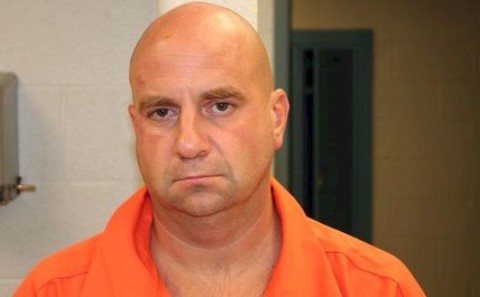Death penalty supporters and theology

Earlier this week, a jury recommended that Steven Hayes--convicted of the brutal murder of Jennifer Hawke-Petit and her daughters Hayley and Michaela Petit--be put to death. CNN ran an intimate interview with a couple of the jurors, an interview Mollie Hemingway rightly praises for not shying away from its subjects' faith.
Some of the quotes, however, beg for theological responses. Here's juror Paula Calzetta, from the online write-up of the TV interview:
"I thought that this would be the only opportunity for this man to ever make peace with his Supreme Being, if he even has one," or to accept responsibility, Calzetta said. She felt the death penalty was necessary for Hayes to accept responsibility or experience remorse.





